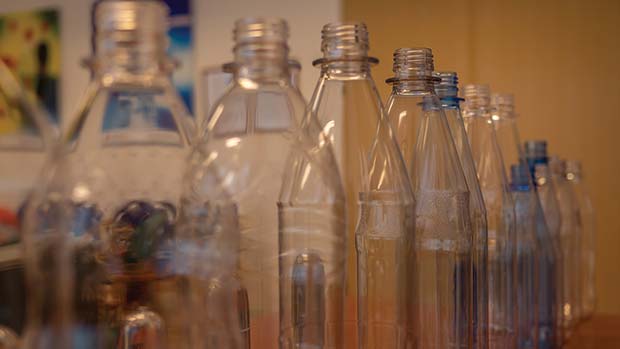By Annemieke Hartman-Jemmett, Group Commercial Director, Petainer

Over recent years there has been rhetoric around waste – and the need to reduce it – which has steadily gained more traction. Consumers and businesses alike have been subjected to increasing cultural and regulatory pressures to reduce their waste and live and operate in a more sustainable, green way.
The most significant evolution in the drive to make companies and consumers more conscious of their waste was the introduction of the 5p plastic bag charge in England (the last country in the UK to start charging for plastic bags) on 5th October 2015. This was a major success for the campaigners who argued that bags blight streets, spoil the countryside, and damage wildlife, seas and coastline, and, in a relatively short time period this new law has transformed consumer shopping habits and big company practice.
The government hopes to see an 80% reduction in plastic bag use in supermarkets, and a 50% fall on the high street. Over the next decade, this should translate into a £60m savings in litter clean-up costs and £13m in carbon savings.
The ambitions for this programme are all rooted in the concept of reusing, as supposed to recycling, to create more environmentally friendly companies and individuals. But despite the early signs of success in behaviour change from the 5p plastic bag law, the UK is in fact trailing quite far behind some of its European neighbours when it comes to reuse, and both the environmental, but also economical, benefits it can bring.
In almost every other European country refillable PET plastic containers are used to some extent for at least one type of beverage. After use, containers are collected through deposit systems, returned to the brand owner to be sterilised and filled, and then re-distributed to the market.
In Denmark, all domestic beer, soft drinks and mineral water must be packaged in refillable containers, and tax on almost all consumer packaging gives refillables a price advantage. Finland has become one of the most successful European countries when it comes to refilling, implementing a simple levy on one-way beverage containers. Refilling is almost a necessity in Finland, in fact, because recycling is an expensive and impractical option for managing used beverage containers. And Germany has gained a worldwide reputation as a pioneer in mandating producer responsibility for packaging waste, and provisions apply not only to soft drinks and beer, but also to water, juice, wine and milk.
It is no surprise these countries have championed reuse initiatives when looking at the clear positive environmental impact they have. Life-cycle analysis shows that key benefits include reduction in greenhouse gas emissions, carbon monoxide emission, solid waste generation and energy consumption.
But it’s not only environmental benefits that are driving the growth of this market in Europe; there’s a very real economic benefit that improves the total cost of ownership for retailers too.
A company using one-way bottles can spend around four to five times as much on packaging as a company that bottles the same quantity of beverage in refillable bottles, which it needs to replace only once in every 20 trips.
In Europe, refilling a PET bottle can be one-tenth the cost of filling a one-way PET bottle once retailers have introduced refillable systems. In some instances, the bottling industry can cover retailers’ costs by paying them a handling fee to cover the extra labour and operating costs for accepting and storing refillables. Automatic take-back machines, widely used in Europe, can minimize and even eliminate retailers’ labour costs.
The 5p plastic bag charge proved that legislation can have a very big impact on business practice, consumer habits and ultimately, the environment – quickly. Perhaps the UK should look to its European neighbours’ other reuse systems to change behaviours but also to drive additional profit for food and drink manufacturers and retailers too.
Introducing Petainer
Petainer is leading the way in Europe, in reducing the environmental impact of PET plastic packaging with its refillable petainerSmallContainer™. The petainerSmallContainer™ can be reused 20 times on average, and reduces carbon footprint by up to 50% compared with one-way containers.
petainerSmallContainer™ is available in a variety of sizes, colours, designs and materials, and Petainer is able to replicate the design of a brands’ existing small container in PET or manage the whole design process according to specifications. An extensive range of materials and barrier properties used, guarantees consumers experience the best a product has to offer. The containers are suitable for the beverage market, but also for a range of chemicals from cleaning to body care products.
Annemieke Hartman-Jemmett
Group Commercial Director
Phone: +44-02073874294
Email: enquiries@petainer.com




Comments are closed.